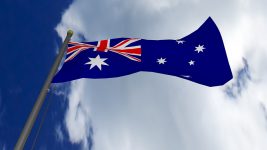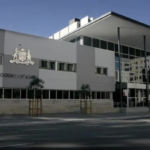Australians Demand a Federal Corruption Watchdog

The recent conviction of former Labor Minister Eddie Obeid for ‘misconduct in public office’ has bolstered the push for a Commonwealth corruption watchdog, with power to investigate misconduct at a federal level.
Lows and Highs of NSW ICAC
The NSW Independent Commission Against Corruption (ICAC) faced a storm of criticism over its inquiry into criminal prosecutor Margaret Cunneen, which was aborted after the High Court found the body had exceeded its investigatory powers.
Ms Cunneen was suspected of encouraging her son’s girlfriend, Sophia Tilley, to fake chest pains to delay a breath test after a car accident. The Court found that the alleged conduct occurred in a private, rather than official capacity, and could not therefore amount to corruption within the scope of the ICAC Act.
ICAC’s David Levine called the investigation a “debacle” and the “low point” in the organisation’s history.
David Ipp, who headed ICAC from 2009 to 2014, said the conviction of Mr Obeid demonstrates the importance of an independent investigatory body.
“It’s only by the use of those powers that ICAC was able to gather the evidence that the prosecution was able to use to prove its case against Obeid beyond reasonable doubt. It would be a very sad thing for New South Wales and Australia if those powers are watered down,” Mr Ipp said.
He believes there is no reason why such investigations should not occur at a federal level.
“I don’t understand why there isn’t a federal ICAC, the idea that it’s only politicians in New South Wales who behave corruptly is just silly”, he said.
Against a Federal Watchdog
The original architect of NSW ICAC, Gary Sturgess, says that although the Obeid conviction vindicates the operations of the NSW body, he does not believe a federal body would be effective because:
“some of the people pushing for a federal ICAC were pushing for a federal morals tribunal”.
He believes NSW has a “horrific corruption problem”, but doubts whether such corruption also occurs at a federal level.
“Therefore — does it need a similar body with such extraordinary powers? I’m not clear on that,” he says.
Simon Breheny, the Director of Policy at the Institute of Public Affairs, is of the view that the government should “reject the idea of anything resembling” a national ICAC.
“The risk of entrenching an ICAC-like body at the federal level is that it may strip away legal rights, such as the right to silence,” he said “Corruption commissions at the state level have become show trials. Important rules of procedure that protect individuals against an overbearing state are ignored in the context of these public hearings”, he says.
In Favour of a Federal Watchdog
Recent Vote Compass data suggests that 80% of Australians are in favour of a federal corruption watchdog.
Anthony Whealy QC, the Chair of Transparency International in Australia, points-out that the Australian public has demanded such a body “for a long time”, and that many question the motives of federal politicians who argue against it.
While Federal Labor previously dismissed the idea of a Federal ICAC, saying there are “already safeguards in place”, Opposition Leader Bill Shorten did a backflip in the lead-up to the recent federal election, promising to reconvene a Senate Committee to investigate the viability of such a body.
The Greens have sought a Senate motion to establish a national body since 2014. Australian Greens Leader Christine Milne recently stated,
“ICAC’s value exposing the revolving door between big business and politics is evident to the nation and people are appalled that it is still going on. We need a national corruption commission because it’s foolish to think this behaviour is isolated to NSW.”
The federal government has consistently opposed the idea of a federal corruption body. When addressing the issue in 2014, Liberal National Party Senator, James McGrath, claimed the Australian people were not “calling out for another bureaucratic institution to be established”. He also dismissed the idea that corruption occurs at a federal level, saying:
“Sometimes they [the Australian public] think we are incompetent … but when it comes to corruption I don’t think Australians think we’re corrupt”.






